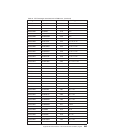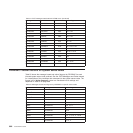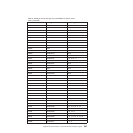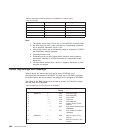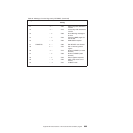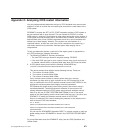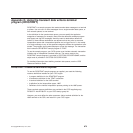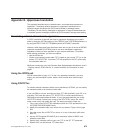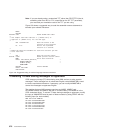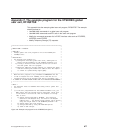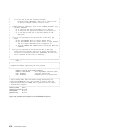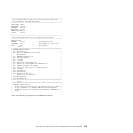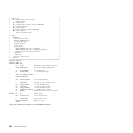
Appendix D. Using the transient data write-to-terminal
program (DFH$TDWT)
DFH$TDWT is a sample program that sends transient data messages to a terminal
or printer. You can use it to send messages from a single transient data queue, or
from several queues, to one terminal.
In the definition for the transient data queue, you can specify that particular
categories of message (for example, those from the abnormal condition program
and signon and sign-off messages) should be sent to destinations defined as
indirect. If these indirect destinations are defined so that they refer to the same
intrapartition queue with a transaction identifier and a trigger level of 1, the receipt
of a single message in any of the specified categories causes the transaction to be
started. The program thus invoked displays or prints the message. The transaction
that invokes the DFH$TDWT sample program is TDWT.
To use the sample program, your CICS system must include automatic transaction
initiation and an intrapartition transient data set. The source code for the
DFH$TDWT sample program is provided in CICSTS32.CICS.SDFHSAMP, and the
object code is provided in CICSTS32.CICS.SDFHLOAD.
For detailed information about defining transient data queues, see the CICS
Resource Definition Guide.
DFH$TDWT—resource definitions required
To use the DFH$TDWT sample program as supplied, you need the following
resource definitions installed on your CICS region:
v A program definition for the DFH$TDWT program
v A transaction definition for the TDWT transaction
v A terminal definition for the L86P terminal
v A definition for the intrapartition queue, L86P
v Definitions for the indirect intrapartition queues pointing to the L86P queue.
These required resource definitions are provided in the CICS-supplied group,
DFH$UTIL. Add DFH$UTIL to your CICS startup group list.
However, you must define the other resources. Add a terminal definition for the
L86P terminal to the CSD, and install it in your CICS region.
© Copyright IBM Corp. 1977, 2011 873



